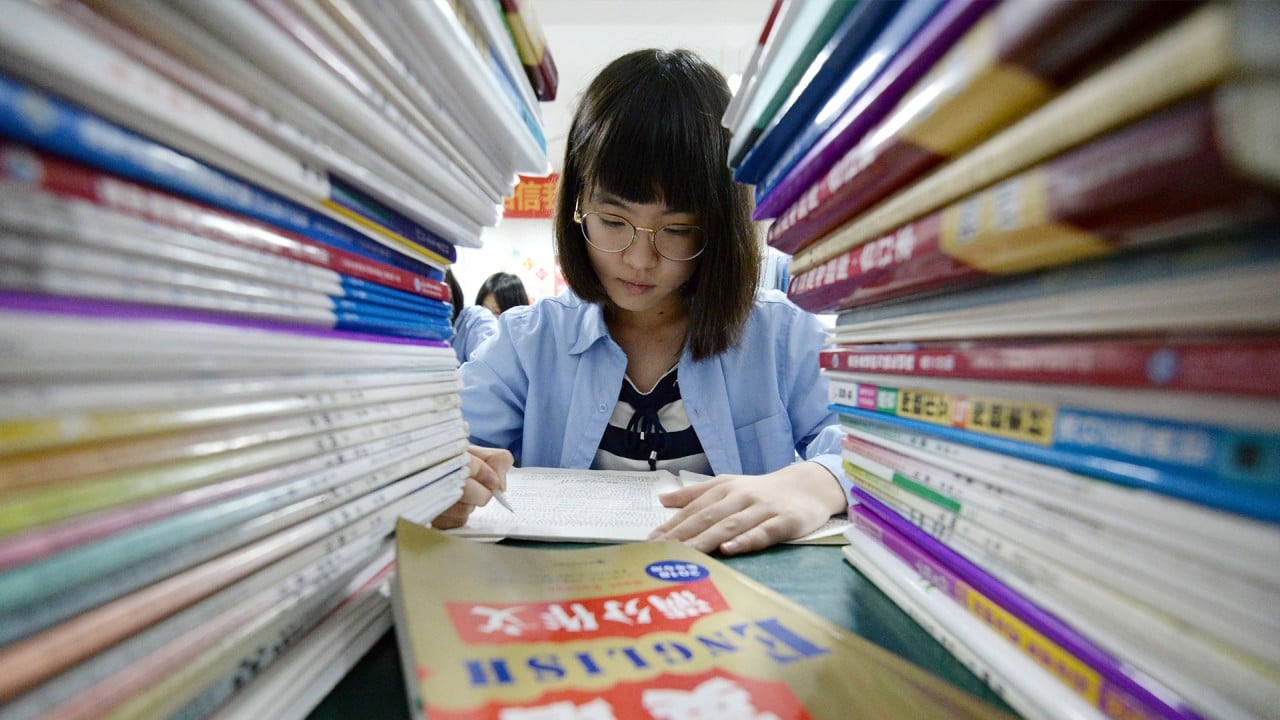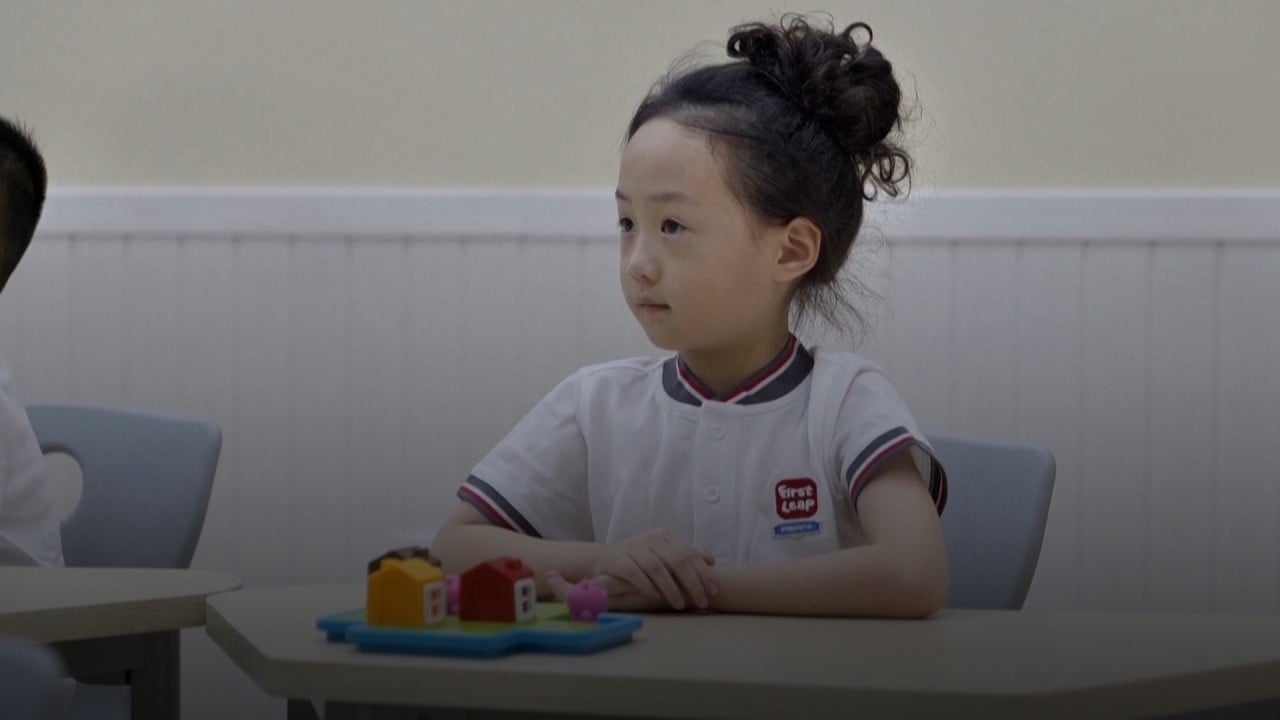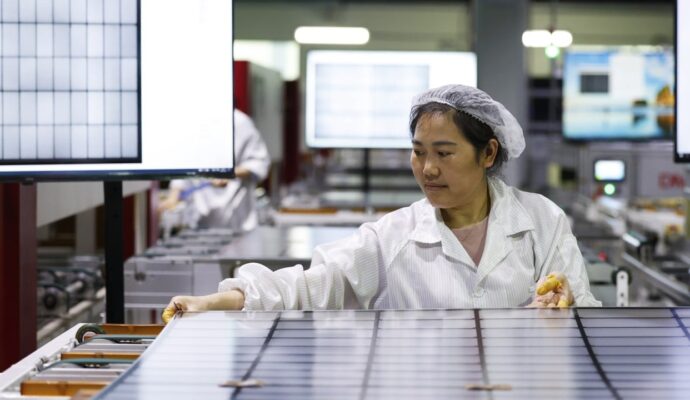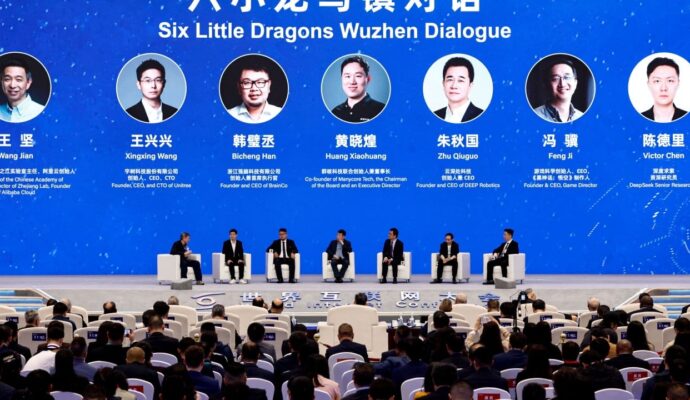Like Tan, many ordinary parents can no longer find tutoring resources since the crackdown, as learning centres disappeared and the threshold for market entry was raised, said Huang Bin, a professor at Nanjing University’s Institute of Education.
“But children from advantaged families are still able to find services,” he said. “The price may have increased, but these families can afford it.”
As a result, disparities in the academic inputs of students from different backgrounds have been exacerbated, which has “profound implications for how children from different families will end up,” he said.
Huang’s observations echoed the findings of a study by a group of Peking University researchers on how the government’s efforts, intended to reduce students’ time burdens and stress levels, worsened educational inequality over a longer period.
Chinese authorities have issued a slew of directives to reduce children’s academic workloads beginning in the 1990s, but implementation of these policies was only intensified in the past decade, with the 2021 crackdown marking the peak.
‘I want to open my eyes’: more Chinese students join rat race to study abroad
‘I want to open my eyes’: more Chinese students join rat race to study abroad
Analysing nearly 15,000 families from 25 provinces and municipalities from 2008 to 2018, the Peking University researchers found that children from families in the bottom decile of income were 9.3 per cent less likely to be admitted into a senior high school after the policy change.
In contrast, those from the top decile were 5.3 per cent more likely to gain admission, according to the research paper. The findings were published in the May edition of the China Economic Quarterly.
Disparate outcomes in school enrolment were correlated with vast gulfs in inputs, the Peking University researchers found. For poorer families, educational expenses dropped by 21 per cent and children’s study time fell by over nine hours per week, while for richer ones, expenses rose by 66 per cent and study time grew by more than 10 hours a week.
We quit after just a few classes, because it was too expensive for us
“It is worth noting that the education model that did not rely on family education and financial expenditure in the past is disappearing,” they wrote in the paper. “Those families that rely more on talent and hard work and thus have low economic investment have to increase financial input after the ‘burden reduction’ policies.”
Pupils in China are entitled to nine years of compulsory education. After completion, they must take a notoriously difficult exam, known as the zhongkao, to be admitted into a senior high school. There, they spend three years before competing for a university spot.
Tan, the mother from Guangdong, said she did manage to find her son an online English tutor earlier this year, as the boy is set to take the zhongkao soon. “But we quit after just a few classes, because it was too expensive for us,” she said.
Delivery drivers with advanced degrees? The challenges facing China’s graduates
Delivery drivers with advanced degrees? The challenges facing China’s graduates
She said she felt that her limited resources are dragging the boy down as he tries to achieve – he has performed well enough to be enrolled in either of the two high schools in the county, but his dream is to attend a top-ranked institution in a bigger city. “This would be really hard. The competition would be huge,” Tan said.
Shanghai mother Shirley Dai has taken pains to avoid those regrets. With a much higher household income, she has ensured that her 11-year-old daughter always studies ahead of the curriculum and gets additional help off campus, even after the tutoring clampdown.
Her daughter, who is studying at a top private school in downtown Shanghai, has taken extra classes after school every workday with a home tutor since last autumn.
“We used to study in small classes at learning centres, which cost around 20,000 yuan a year, but they collapsed since the ‘double reduction’ policy,” said Dai, who works as an office manager while her husband runs a small business. “We now have turned to a one-on-one tutor, who charges nearly 2,000 yuan for a single week.”
Home tutors are also illegal under the policy changes, but they are hard to track.
Dai said her investment in private tutoring has borne some fruit – her daughter outshines most of her classmates, at least for now.
We should consider the students’ background … when scoring them on a test
Though unsure whether she can keep it up indefinitely, Dai said she remains committed. “I’ll certainly go on spending in this regard as long as we’re financially comfortable.”
To avoid the dramatic gap epitomised by the two families’ situations, educational authorities should reform how students are appraised, said Chu Zhaohui, a senior researcher at the National Institute of Education Sciences, an institution under the Ministry of Education.
“We should consider the students’ background, say, whether they’re from a good school in a big city or a poor one in a rural area, when scoring them on a test,” he said. “This is not hard to do in an open and transparent society.”
China rolls out harsh fines, tighter licensing requirements for private tutors
China rolls out harsh fines, tighter licensing requirements for private tutors
However, progress on such reform – which requires independent evaluation beyond the school or educational authority – has been slow.
“It’s not compatible with the system we have now – one that is dominated by the government … so how to make the change happen?” Chu asked. “It lies in streamlining administration and delegating power, letting professional organisations do what they specialise in.”
For parents, a more direct method is to push schools to do more themselves.
Over 60 per cent of parents of primary and middle school students said they wanted schools to provide more extracurricular activities, and the same portion said they hoped schoolteachers can provide extra attention to children who lag behind academically, according to a survey of over 1,300 parents published by China Youth Daily earlier this month.
Notably, over a quarter also expressed hopes that students in remote areas would have better access to educational resources.
Huang, the Nanjing professor, said schools in rural China have improved their facilities and equipment, but still lack qualified teachers.
[Education] competes with other public and private sectors for quality labour
“We can build a pretty school for a rural area in a short period, but it remains a difficult issue to recruit enough quality teachers,” he said. “The biggest problem for China’s education now is [this] acute shortage.”
Rural schools are largely having trouble attracting talent because of the poor pay they are offering, he added.
“Our education sector competes with other public and private sectors for quality labour,” he explained. “Only when the bids are high enough and the compensation for teachers in rural and remote areas is large enough can more high-quality labour be attracted to grass roots schools.”
China’s top test-prep school hopes to find new life in e-commerce
China’s top test-prep school hopes to find new life in e-commerce
Tan, the mother from Guangdong, said in her hometown it is a well-known fact that only half of zhongkao participants will be able to enter a senior high school.
Parents’ efforts in demanding better educational resources, she added, have yet to improve conditions.
“Generally, people in the countryside don’t pay as much attention to their kids’ studies [compared to the city],” she said. “So they’ll just accept it if the kid doesn’t perform well enough.”




